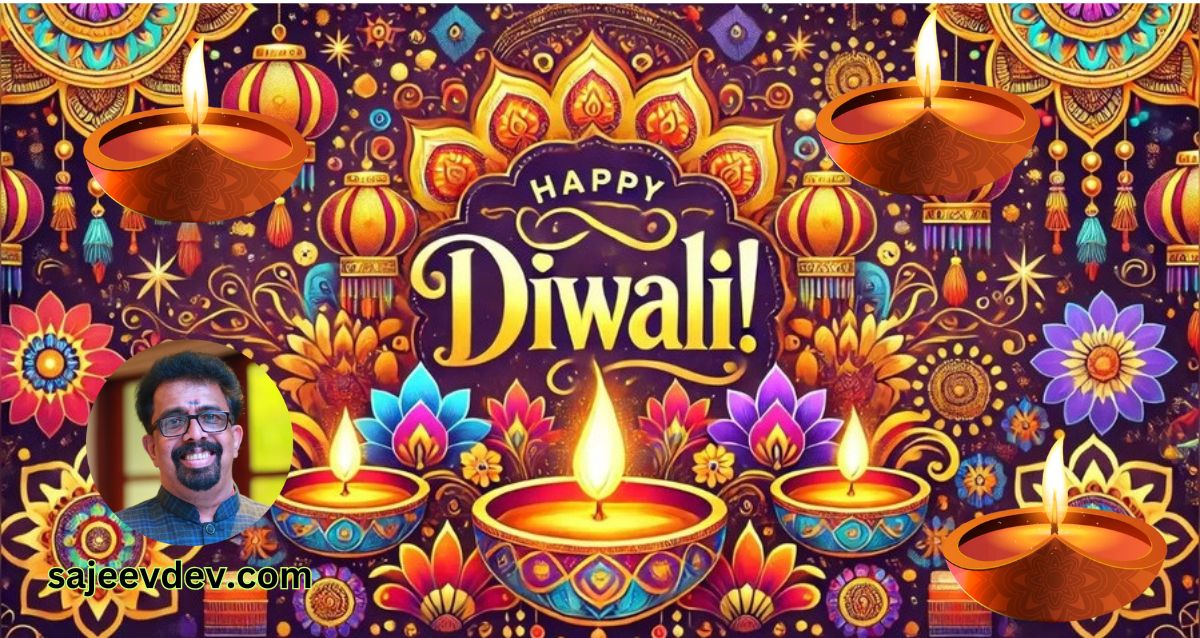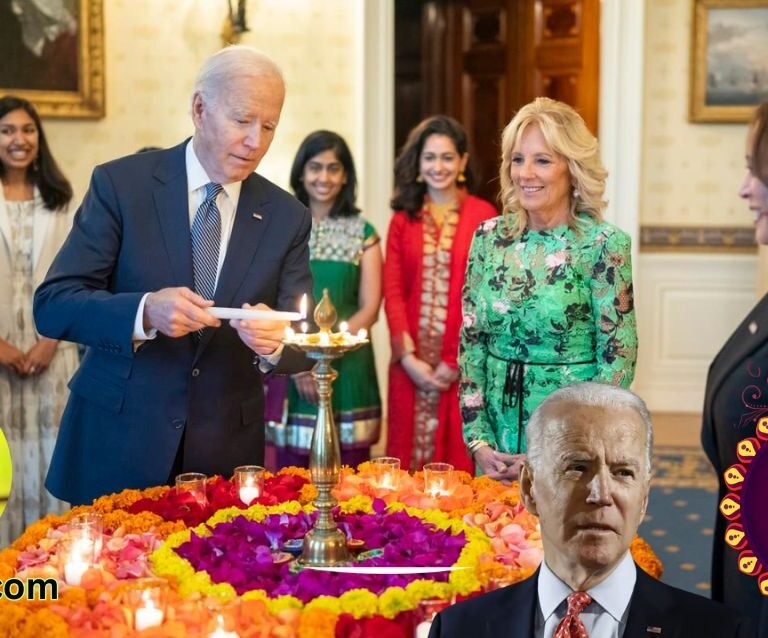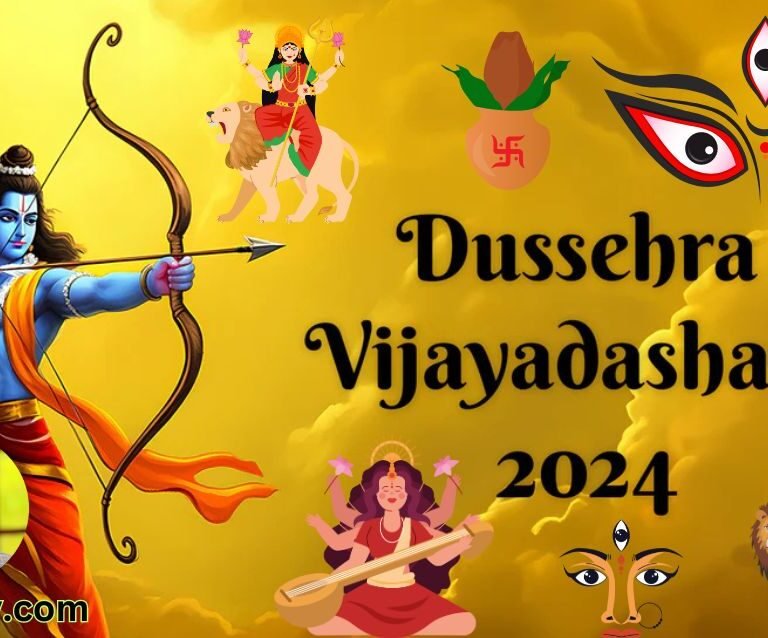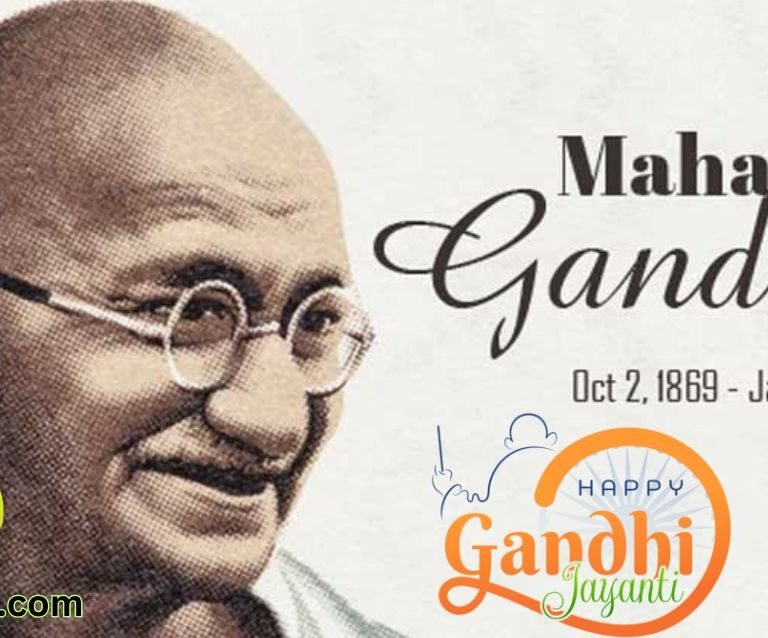Diwali: The Festival of Lights
Diwali, also known as the Festival of Lights, is one of the most significant and widely celebrated festivals in India and around the globe. This vibrant occasion transcends geographical boundaries, uniting millions in a shared celebration of light, joy, and prosperity. Diwali usually falls between October and November, marking the onset of the Hindu New Year and welcoming the winter season. It is celebrated by diverse communities, each adding its cultural flair to the festivities.
The significance of Diwali is deeply rooted in various ancient traditions and legends. Predominantly, the festival commemorates the return of Lord Rama, along with his wife Sita and brother Lakshmana, to their kingdom Ayodhya after a 14-year exile and the defeat of the demon king Ravana. This epic tale from the Ramayana underscores the triumph of good over evil, a theme echoed universally across cultures. Additionally, Diwali honors Goddess Lakshmi, the deity of wealth and prosperity, and marks the harvest season, prompting expressions of gratitude for the bounty received.
Symbolically, Diwali represents the victory of light over darkness, both literally and figuratively. During the festival, homes and public spaces are adorned with an assortment of lights, oil lamps (diyas), and colorful decorations that create a warm and inviting atmosphere. Fireworks illuminate the night sky, signifying joy and celebration. The act of lighting these lamps serves as a reminder to dispel ignorance and negativity while embracing knowledge and enlightenment.
In essence, Diwali is more than just a celebration; it is a time for reflection, renewal, and the forging of deeper connections among family, friends, and communities. The festive season invites everyone to partake in rituals that convey goodwill, encouraging a spirit of sharing and togetherness. The blessings of Diwali extend beyond material wealth; they encompass emotional and spiritual richness that resonates throughout the year.
The Spirit of Diwali: Celebrating Togetherness
Diwali, also known as the Festival of Lights, is a profoundly significant occasion that embodies the spirit of togetherness. This vibrant celebration transcends mere rituals and practices; it is fundamentally about the communal experience shared among families and friends. During this time, individuals gather in warmth and laughter, igniting a sense of belonging that is often felt but not explicitly articulated. The very essence of this festival rests in the connections that people cultivate, thereby enhancing the joy and magnitude of the celebrations.
Family gatherings are a hallmark of Diwali festivities, as loved ones often travel great distances to reunite during this time. It is not uncommon for homes to be filled with the tantalizing aroma of traditional dishes being prepared and shared, reinforcing the idea that food is a medium through which love and togetherness are expressed. Each meal represents more than sustenance; it acts as a catalyst for creating memories that will be cherished for years to come. Conversations flow abundance during these shared meals, allowing family members and friends to reconnect and strengthen their bonds.
Additionally, the exchange of gifts and sweets symbolizes the goodwill and affection between individuals, fostering an atmosphere of generosity and kindness. The act of gifting brings immense joy, emphasizing that love and thoughtfulness is what truly matters during this festive period. The overarching theme of Diwali illustrates that the joy derived from being with loved ones is unparalleled. Whether it be through shared laughter, heartfelt stories, or collaborative festivities, the connections formed during Diwali serve as the foundation for cherished memories.
Ultimately, it is through this spirit of togetherness—rooted in love, connection, and shared experiences—that the true happiness of Diwali is realized. As people come together to celebrate, they illuminate not just their surroundings but their hearts, enhancing the overall significance of this cherished festival.
Wishing for Peace and Happiness: Heartfelt Diwali Greetings
Diwali, often referred to as the Festival of Lights, is a time for joy, celebration, and connection with loved ones. During this auspicious occasion, conveying heartfelt greetings becomes essential. Sincere messages not only strengthen bonds but also spread peace and happiness among family and friends. When crafting Diwali greetings, the focus should be on authenticity and warmth, ensuring that your wishes resonate with the recipient.
One of the simplest yet most effective ways to express your Diwali wishes is through personalized messages. By incorporating specific memories or sentiments, you can evoke a sense of nostalgia and emotional connection. For instance, you might say, “On this beautiful Diwali, I fondly remember the times we celebrated together. May this festival bring you abundant joy and peace.” Such personalized greetings highlight sincerity and reinforce the bond you share with the person.
Another approach is to focus on themes of prosperity and well-being. A thoughtful greeting could be, “Wishing you a Diwali filled with sweetness and light. May each moment of this festival illuminate your life with happiness and your home with prosperity.” This not only conveys your wishes for the occasion but also reflects a genuine hope for their future happiness.
Additionally, using traditional expressions adds cultural richness to your greetings. A message like, “May the divine light of Diwali bring peace and prosperity to your life,” connects the recipient to the spiritual essence of the festival. Incorporating such phrases can enhance the meaning and depth of your wishes.
Ultimately, whether through texts, cards, or face-to-face interactions, the key is to be genuine in your expressions. Thoughtful Diwali greetings, filled with peace and love, leave a lasting impression and contribute to the joyous spirit of this cherished festival.
Sparkling Moments: Creating Joyful Memories
Diwali, often referred to as the Festival of Lights, offers a unique opportunity to create joyful memories with loved ones. One of the most cherished traditions during this festive season is decorating homes. Families often come together to adorn their living spaces with vibrant rangoli, twinkling lights, and beautiful diyas. These decorations not only illuminate the environment but also create a warm and inviting atmosphere that fosters joy and togetherness. Engaging in this activity allows families to bond and share their creativity, ensuring that the spirit of Diwali resonates throughout the home.
Participating in community events is another way to enhance the festive spirit. Many neighborhoods organize cultural programs, fairs, or food festivals where people gather to celebrate together. These gatherings often include traditional music, dance, and art, showcasing the diverse culture associated with Diwali. Being part of such events not only strengthens community ties but also provides an opportunity to meet new people and share experiences, enriching the celebration with a sense of belonging.
No Diwali celebration would be complete without engaging in delightful traditions such as firecracker displays and sweet-making. Families often take the time to create homemade delicacies, which fosters an environment of teamwork and joy. The sensation of cooking and savoring these treats contributes to the overall festive experience. Additionally, exchanging gifts is a practice that symbolizes love and goodwill. Thoughtful gifts can strengthen relationships and create lasting memories that individuals will cherish for years to come.
Ultimately, the essence of Diwali lies in making each moment count. From decorating homes to taking part in community celebrations and indulging in time-honored traditions, each activity is an opportunity to nurture relationships and amplify joy. By focusing on shared experiences, families can ensure that the sparkle of Diwali lights up their lives long after the festival has ended.
The Importance of Health and Well-Being During Festivities
As the festival of Diwali approaches, the atmosphere fills with joy, excitement, and an abundance of rich delicacies. While partaking in the numerous sweets and savory dishes is part of the celebration, it is essential to prioritize health and well-being during this festive season. The importance of maintaining overall wellness cannot be overstated, as it contributes to a more fulfilling experience of the festivities.
Indulging in a variety of festive foods can lead to overconsumption, which may adversely affect both physical and mental health. To enjoy the culinary delights while safeguarding health, one can practice mindful eating. This involves savoring each bite, paying attention to hunger cues, and avoiding distractions such as screens during meals. By focusing on the flavors and textures, individuals can appreciate the food without overspending on calories, thereby promoting a balanced approach during Diwali.
Beyond mindful eating, physical activity also plays a vital role in maintaining health during festivities. Engaging in regular exercise, even in short bursts, can help manage stress levels and maintain energy while navigating the demands of celebratory gatherings. Activities such as yoga, walking, or even dancing at festive events can provide enjoyment while positively impacting physical wellbeing. Moreover, staying hydrated and incorporating fruits and vegetables into one’s meals can further enhance health during this season.
Mental well-being is equally important during this time of celebration. The hustle and bustle of Diwali may lead to feelings of anxiety or stress. Taking moments for self-care, such as practicing relaxation techniques, meditation, or simply spending time with loved ones, can foster mental resilience. Creating an environment that is supportive and nurturing encourages not only personal well-being but also collective joy among family and friends.
In conclusion, amidst the festivities of Diwali, prioritizing health and well-being is crucial. By cultivating mindful eating habits, engaging in physical activity, and nurturing mental wellness, one can truly embody the spirit of celebration while ensuring a harmonious balance between indulgence and health. Remember, true prosperity encompasses not only material abundance but also lasting well-being.
Diwali Decorations: Illuminating Your Space
Diwali, known as the Festival of Lights, is a celebration that invites individuals to transform their homes into radiant sanctuaries of joy and warmth. The essence of Diwali decorations lies in their ability to reflect the festive spirit while infusing a sense of tranquility and happiness throughout the household. One of the most cherished elements of these decorations is the quaint diya, or oil lamp. Placing diyas around the home not only enhances the luminescence of the environment but also symbolizes the victory of light over darkness.
In addition to diyas, the vibrant tradition of rangoli should not be overlooked. These decorative designs, created using colored powders, rice, or flower petals, adorn the entrance of homes, inviting good fortune and prosperity. Rangoli patterns can range from simple to intricate, empowering individuals to express their creativity while honoring the cultural significance of this festive art form.
Strings of fairy lights further elevate the Diwali ambiance, creating a mesmerizing and enchanting atmosphere. Whether hung on walls, wrapped around railings, or draped across windows, these lights represent the joy and celebration inherent in the festival. Choosing warm white or multicolored lights can tailor the overall mood according to personal preferences, making the space feel inviting and festive.
Flower decorations are another integral aspect of Diwali décor. Fresh flowers, especially marigolds and jasmine, can be utilized to create garlands or arranged in vases to enhance the look of any room. The fragrance of these flowers can create a pleasant olfactory experience, adding another layer of depth to the celebration. By incorporating these traditional elements within your home, you can successfully create an environment that embodies the joyous spirit of Diwali, inviting light, prosperity, and happiness to dwell within.
Sharing the Joy: Community and Charity During Diwali
Diwali, often referred to as the Festival of Lights, transcends individual celebrations and emphasizes community engagement and charity. This significant festival encourages the collective spirit of giving back and sharing one’s blessings with those less fortunate. As such, the essence of Diwali is deeply rooted in fostering compassion and social responsibility, making it an ideal time for charitable activities that benefit the community.
During this festive period, individuals and families often reflect on their fortune and consider ways to support those in need. Volunteering at local shelters, contributing to food drives, and donating clothing or essential items are some of the ways one can actively participate in community-oriented charitable endeavors. Furthermore, many organizations run special Diwali campaigns that focus on assisting underprivileged children, elderly citizens, or healthcare initiatives requiring financial aid. Engaging in such activities not only aids those in need but also amplifies the Diwali spirit of unity and compassion within local communities.
Moreover, participating in community service during Diwali creates an opportunity for individuals to bond with neighbors and foster a sense of togetherness. Organizing events such as community dinners or festivals, where all members can come together to celebrate and share meals, reinforces the importance of nurturing relationships and building connections beyond personal circles. Furthermore, many community centers host workshops and activities that involve various cultural practices around Diwali, inviting everyone to partake in the festive joy.
Incorporating acts of kindness into Diwali celebrations can bring about significant change and inspiration in society. Remember that the true joy of Diwali is not merely in the lights and festivities, but in the spirit of generosity and compassion that prevails during this meaningful time. By sharing our blessings and demonstrating our commitment to bettering our communities, we can ensure that the Festival of Lights brings joy to all.
Conclusion: Embracing the Spirit of Diwali Year-Round
Diwali, known as the festival of lights, represents a rich tapestry of tradition, celebration, and profound significance. Characterized by the illumination of homes and hearts, this auspicious occasion serves as a reminder of the endless joy and prosperity that can be cultivated in our lives. As families gather to celebrate with sweets, prayers, and the lighting of diyas, it is essential to reflect on the deeper meanings that lie within these rituals. The light symbolizes knowledge, and darkness signifies ignorance; hence, Diwali urges us to embrace wisdom and dispel negativity.
As the festivities conclude, it is vital to carry forth the essence of Diwali throughout the year. This can be achieved by adopting a mindset of gratitude, recognizing the abundance we possess, and sharing our blessings with others. Just as the festival brings families together, fostering unity and love, individuals can strive to maintain these connections beyond the festive season. Acts of kindness, compassion, and understanding towards others will serve to illuminate our daily lives, creating a ripple effect of positivity every day.
Moreover, the values of self-reflection pushed forth during Diwali allow us to cultivate personal growth. As we clean and decorate our spaces for the festival, we should also take the time to cleanse our thoughts and attitudes, enabling us to approach challenges with positivity. Embracing financial prudence and mindful consumption can be other aspects of incorporating Diwali’s principles of prosperity in our lives. Ultimately, the celebration of light and resilience should not be confined to a specific festival but rather cherished and lived daily, fostering an environment of hope and joy.
We encourage you to engage with our community by leaving your comments, sharing your personal anecdotes, or expressing your wishes for the festival
As we conclude our exploration of the beautiful festival of Diwali, we would like to extend a heartfelt invitation to our readers to share their own experiences and thoughts regarding this cherished celebration of light and prosperity. Diwali holds a unique place in the hearts of many, embodying values of unity, happiness, and gratitude. Every celebration, enriched with personal stories, traditions, and customs, contributes to the rich tapestry of this festival.
We encourage you to engage with our community by leaving your comments, sharing your personal anecdotes, or expressing your wishes for the festival. Perhaps you have a special recipe that your family loves to prepare during Diwali, or a memory of lighting diyas alongside loved ones that brings a smile to your face. Whatever your story may be, your contributions will foster a sense of connection and camaraderie among fellow readers who are also celebrating this auspicious occasion. The essence of Diwali lies not only in the rituals but also in the bonds we share with one another.
Moreover, we invite you to extend your Diwali greetings to the community. Whether it’s a simple “Happy Diwali” or a heartfelt message recognizing the joys and blessings this festival brings, your words will surely resonate with others. This platform serves as a collaborative space where **everyone can come together** to honor the spirit of Diwali, regardless of where they are in the world.
Let us illuminate this corner of the internet with our collective memories and wishes, making our shared experience of Diwali even more meaningful. We look forward to reading your stories and thoughts, as we celebrate the light, love, and prosperity that this festival represents.









